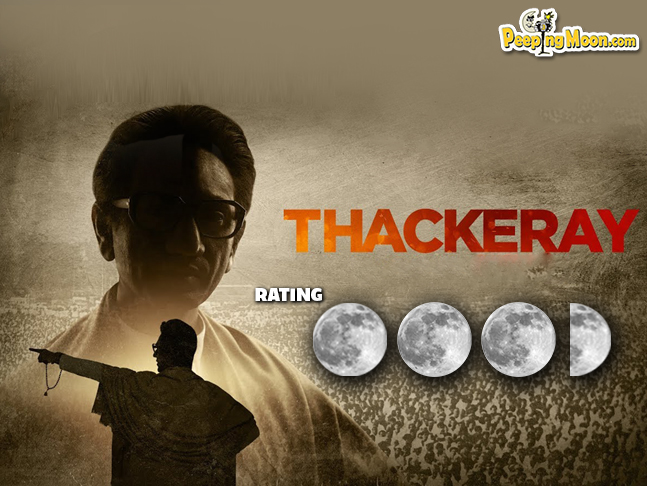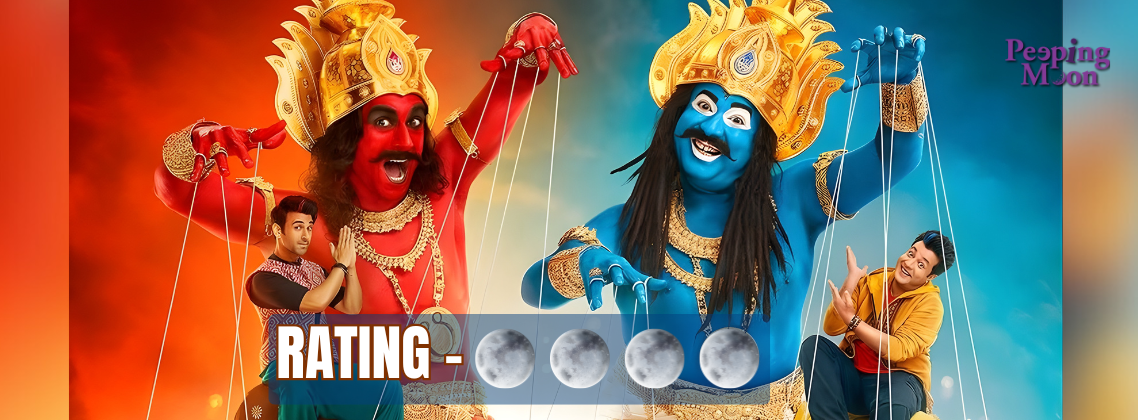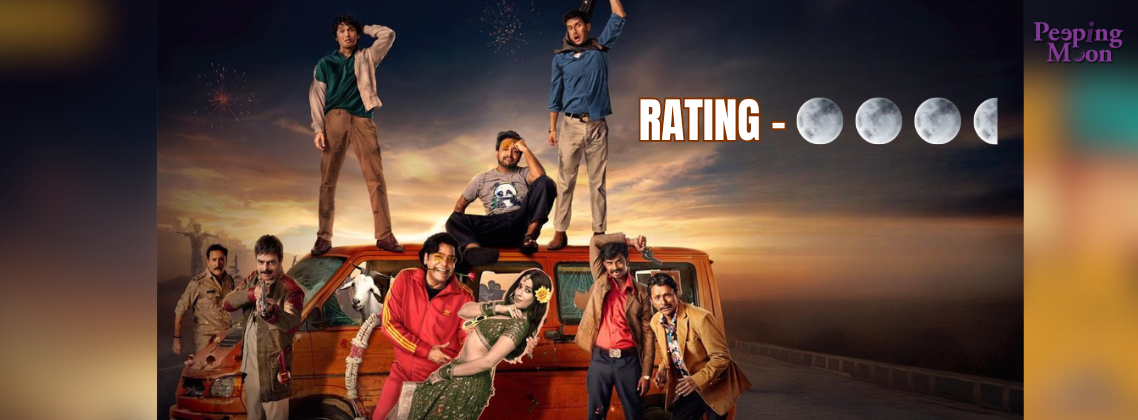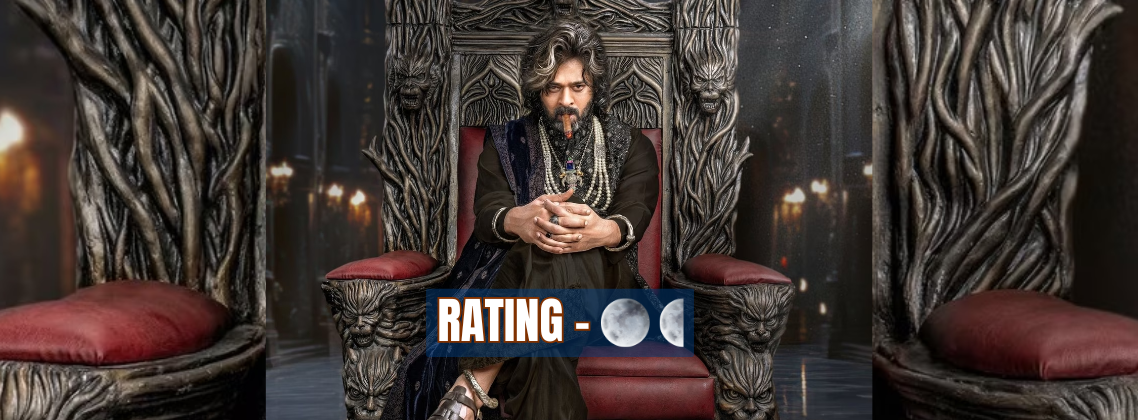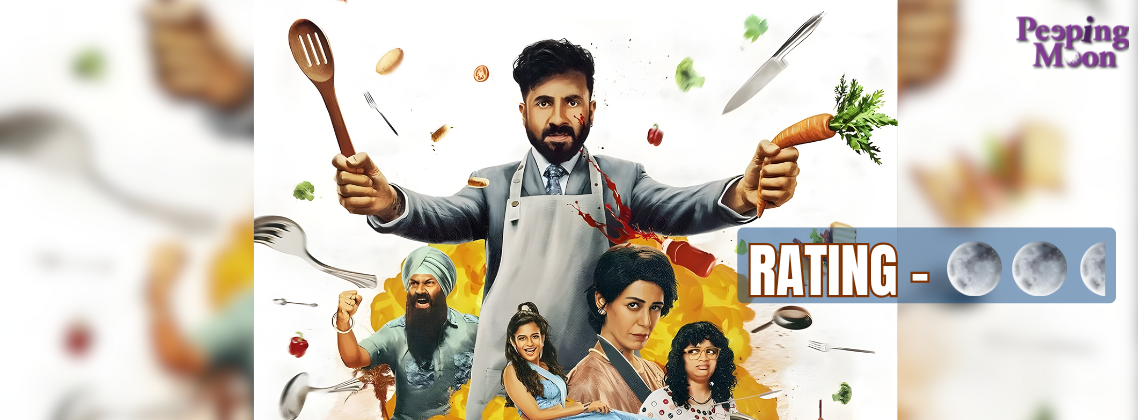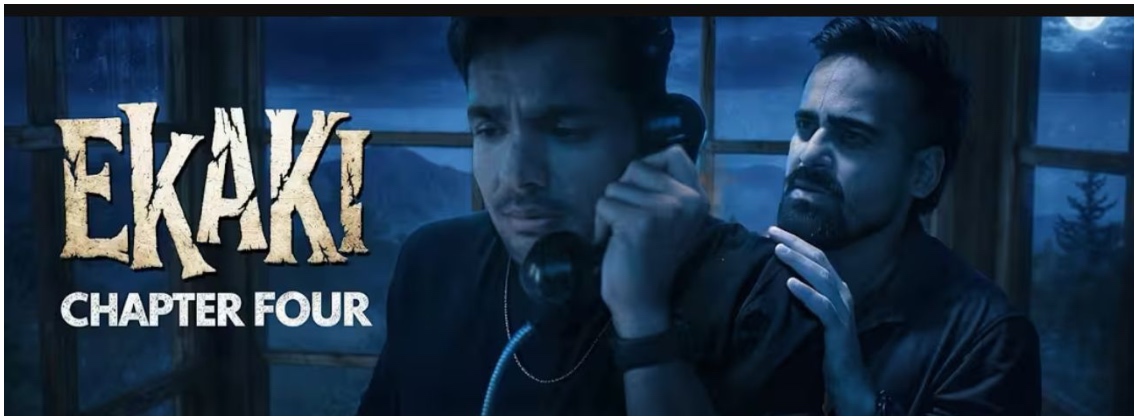First things first, Nawazuddin Siddiqui is a dead ringer for Balasaheb Thackeray. Producer Sanjay Raut, who zeroed in on the actor after seeing him in the comedy film Freaky Ali, could not have chosen better. I don’t think Irrfan, who was briefly in consideration, would have looked the imperious part of the Shiv Sena supremo. Or acted convincingly like him.
However, in the Abhijit Panse-directed biopic Thackeray, though his canvas is vast, Nawazuddin does not have the role to display his dynamics as an actor. That’s because his character, Balasaheb Thackeray, in real life was the strong but silent type. His specialty was the understated barb. His witticism and criticism of people and politics was delivered off the cuff with deadpan panache.
[caption id="attachment_34406" align="aligncenter" width="539"] Nawazuddin Siddiqui as Balasaheb Thackrey[/caption]
Nawazuddin Siddiqui as Balasaheb Thackrey[/caption]
Certainly, Balasaheb roared like a tiger from Shivaji Park on the occasion of the party’s Dussehra rally, but his decisions and policies, his threats and fatwas, were all made from within Matoshree in a soft voice of deadly and purposeful intent. Often with a glass of wine in the hand and a cigar stuck jauntily in the mouth. Marlon Brando in Godfather and Amitabh Bachchan in Sarkar have come close. But all this, too, Nawazuddin has brilliantly managed to convey like he is the “Saheb” of Sena Bhavan in real life.
The deficiency of Thackeray, however, is that it is a short and enjoyable, almost documentary-like film on Balasaheb’s journey from his days as an underpaid, ill-treated cartoonist at the Free Press Journal to his ascension to power by triumphantly taking the Shiv Sena to Mantralaya (with the BJP, of course) in 1995. That’s as far as it goes and ends. And when the titles come up, they begin by saying “To be continued…”
This is not a film on Balasaheb’s life. It doesn’t show him going pan-India as the Shiv Sena moves from its pro-Marathi ideology to one supporting a nationalist Hindutva agenda; or the party’s rise and fall in Maharashtra, it’s split and realignment with the BJP; the militant role it plays in the BMC and trade unions; the powerful hold it has over Bollywood; the shady merger with the underworld; the decimation of the party, the split down the middle, which led veteran leaders Chhagan Bhujbal and Narayan Rane to leave the fold and Balasaheb’s protégé Raj Thackeray to start his own political Sena.
Like Raju Hirani attempted with Sanjay Dutt, this is a biopic that seeks to dispel the notion that Balasaheb was communal and the party was fascist. It shows him intolerant only in his speech and not his actions. The protagonist here is a hero. The film has him making a mockery of the CBI prosecutor and a joke of the proceedings in the Lucknow court for his role in the Babri Masjid demolition and subsequent riots, but there is no showing of bloodshed, riots and violence. That part of the Shiv Sena, in fact, has been kept to the minimum.
[caption id="attachment_199243" align="aligncenter" width="647"] Nawazuddin Siddiqui in a still from Thackeray[/caption]
Nawazuddin Siddiqui in a still from Thackeray[/caption]
The film is also patchy in its reference to cricket with Pakistan which was a team Balasaheb loved to hate the most. The infamous meeting at Matoshree with Javed Miandad and Dilip Vengsarkar took place in July 2004; the vandalism of cricket pitches at Wankhede and Ferozeshah Kotla where Indo-Pak matches were to be played happened in 1991 and 1999 respectively. But somehow Thackeray gives the impression that the desecration happened after Balasaheb mildly tells Miandad, “You need grounds to play cricket.”
Disappointing, also, is the absence of any mention of Balasaheb’s family with Meenatai (played with cozy Maharashtrian charm by the lovely Amrita Rao) though there are scenes of the Thackeray brothers Uddhav, Bindhumadhav and Jaidev in the film. But other characters feature, like party stalwarts Manohar Joshi, Pramod Nawalkar and Wamanrao Mahadik. There is also Morarji Desai as the Chief Minister of Bombay state and George Fernandes as a veteran trade union leader who spends time in the lock-up with Balasaheb. And, a meeting between the Sena chief and Prime Minister Indira Gandhi post the Emergency that few people seem to know about. And there’s Sharad Pawar, too. But no Atal Behari Vajpayee, with whom Balasaheb had a splendid equation.
[caption id="attachment_193734" align="aligncenter" width="647"] Amrita Rao and Nawazuddin Siddiqui at Thackeray Music Launch[/caption]
Amrita Rao and Nawazuddin Siddiqui at Thackeray Music Launch[/caption]
Thackeray has been brilliantly shot, the first half of the film when Mumbai was Bombay and Balasaheb was Bal Keshav Thackeray, is in black and white. And it is an amazing trip down memory lane for people of the city. The background score by Amar Mohile is a constant reminder that you are watching a film about a powerful personality in whose life sensational events happened. The dialogues are mostly original, produced by Balasaheb himself on the spur of the moment. But the film belongs to Nawazuddin Siddiqui and to Sanjay Raut for casting him and making it at all. The one scene I was hoping for didn’t come on the screen. Michael Jackson’s visit to Matoshree in November 1996. I wish like the 2004 meeting with Miandad had been included, Thackeray had gone beyond 1995 to add that historic meeting.

